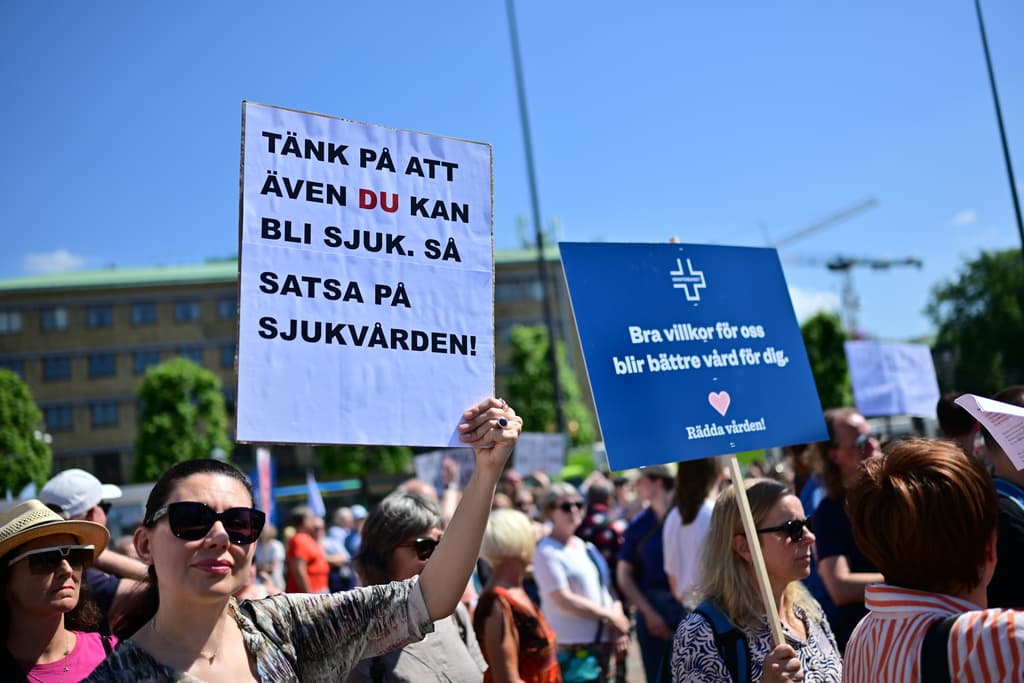The healthcare conflict is over. Both parties have accepted the mediators' latest offer, which includes, among other things, some reduction in working hours.
"Our conflict has yielded results," says Sineva Ribeiro of the Swedish Association of Health Professionals.
The agreement is one-year and follows the general mark of 3.3 percent that applies to the labor market. The parties have also agreed on a declaration of intent regarding working hours.
According to the Swedish Association of Health Professionals, the agreement means that more people working irregular hours will receive reduced working hours, up to four hours per week, and that overtime will be evaluated.
"Happy and relieved"
"Together, we have moved the employers on the issue of working hours. From the employer saying a flat no to reduced working hours, we now see that members who already work in rotation will get reduced working hours," says Sineva Ribeiro, chair of the Swedish Association of Health Professionals, in a press release.
"Our long-term goal of a gradual reduction in working hours for our members has begun."
The Swedish Association of Local Authorities and Regions (SALAR) also welcomes the agreement.
We are very happy and relieved that the agreement is in place. It has dragged on for a long time and has put a great strain on healthcare, says Jeanette Hedberg, chief negotiator at SALAR, to TT.
110,000 employees
The agreement applies from today until March 31, 2025, and covers around 110,000 employees.
The Swedish Association of Health Professionals' overtime blockade came into effect on April 25 for around 63,000 members in the country's regions. The blockade was extended on May 20 to also apply to several larger municipalities and an additional 5,000 members.
On May 21, the Swedish Association of Health Professionals expanded its conflict warning to include a strike in five regions: Stockholm, Västra Götaland, Skåne, Östergötland, and Västerbotten. The strike came into effect on June 4 for around 2,000 people. It was extended on June 11 with an additional 1,300 members, including in Värmland.
A guaranteed wage increase of 3.05 percent.
Overall, the agreement gives members a value equivalent to the mark of 3.3 percent.
The proportion of night shifts for full-time employees on rotation with 36 hours and 20 minutes is reduced from a minimum of 20 percent to a minimum of 10 percent at night.
The working hours for full-time employees on permanent night shifts are reduced from 40 to 36 hours per week on weekdays, but not on Sundays and public holidays.
Full-time employees who work rotation on weekdays and have 40 hours per week will have their weekly working hours reduced to 36 hours and 20 minutes, or 34 hours and 20 minutes, depending on how many nights they work.
A previous demand to deviate from the Working Hours Act, citing NATO membership, has been dropped.
Sources: The Swedish Association of Health Professionals and SALAR






